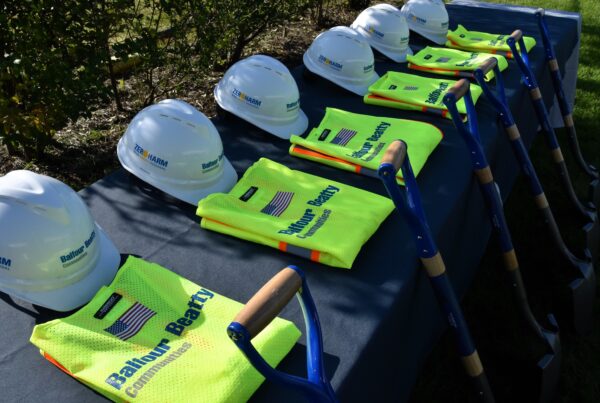From KERA News:
Problems created within a year since Dallas County bought and switched jail and court management software have cost the county more money, and people in custody their freedom.
The county recently paid a $100,000 federal civil rights lawsuit settlement after keeping a man jailed after a judge said he had served his time. Chris McDowell’s lawyer blamed the new software.
The county also settled for $60,000 with Ryan Harris, who’d been held in jail for too long after his release date last year. His lawyer said missing paperwork, not software, caused the problem.
Krishnaveni Gundu is a co-founder and executive director of the Texas Jail Project. She says that similar lawsuits are pending throughout Texas.
In Chris McDowell’s case, the federal lawsuit alleged that computer system problems likely contributed to his continued detention in the Dallas County jail.
“The County’s longstanding flawed process for timely releasing inmates was exacerbated by technological issues as early as May 2023, when the County began migrating case files from the County’s 40-year-old Forvis criminal case management software system (Forvis) to Tyler Technologies’ Odyssey criminal case management software system,” states the lawsuit filed by civil rights attorney Dean Malone.
“The County retired Forvis before Odyssey was fully operational.
…[it]ineffectually integrated Odyssey and failed to train Odyssey users, which also led to more delays in releasing inmates after they had fully served their sentences.”
Housing a person in Dallas County’s Lew Sterrett Justice Center jail costs about $85 each day — more than half a million dollars for 6,400 people detained.
Monthly, that’s about $16 million. Before the software transition, the monthly cost was about $12 million.
County commissioners are considering a recent committee presentation and recommendation for a new $3 billion jail and justice center — $5 billion adjusted for year 2032.
‘Excuse me?’
McDowell had shoplifted from a Lancaster Wal-Mart two years ago and missed his probation appointment while he was in Ellis County’s jail for a drug offense.
That landed him right back in Lew Sterrett.
McDowell stayed there at least 50 days after a judge said he had served enough time to satisfy his sentence.
That day in court, he returned to the jail, excited, and packed his things.
Then he asked a guard about the release process.
“He got my name and stuff and he told me ‘Well you’re going to [the Texas Department of Criminal Justice.’ I said ‘Excuse me?’” McDowell recalled.
The county never sent McDowell to state prison, but it didn’t send him home, either.
He lost his job, his truck and 40 pounds.
Exhausted, he pestered guards every day about his release. They threatened discipline and segregation, he says.
McDowell said he committed crimes for which he rightly had to serve jail time.
“It’s one thing to go in there and know you gotta do an amount of time and know when you’re getting out,” he said. “It’s another thing when you know you’re supposed to be out and they’re not letting you go home.”
Attorney Dean Malone represents McDowell.
“Officially, Dallas County did not admit that it did anything wrong. However, we feel that the six-figure settlement for Mr. McDowell being held weeks after his release date in the Dallas County Jail speaks volumes,” Malone said.
Three weeks after KERA News first asked about settlements, Sheriff Marian Brown, District Attorney John Creuzot and District Clerk Felica Pitre had not yet responded.
Software change
Dallas County Judge Clay Lewis Jenkins said computer system failures have caused major problems.
“Any time a person spends even one more day in jail than required by law is unacceptable,” Jenkins said. “We have added additional, temporary staff to work on this issue of ensuring that people get out of jail when they are supposed to.”
A little over a year ago, Dallas County commissioners unanimously approved the new Odyssey jail and court software implementation.
Though some commissioners expressed concerns about rushing, the new system transitioned May 16.
Commissioner Elba Garcia often reminds the court that she and others were hesitant.
Many say the transition has been a financial, legal and law enforcement disaster.
Jail staff have been handwriting paperwork to process inmates.
The county has spent more than $1 million dollars so far trying to untangle the IT nightmare.
Jenkins said the court recently demanded answers.
“We called Tyler Technologies to a special-called meeting of the commissioners court to ascertain from them what steps needed to happen and how much longer it was going to take for the system to work properly,” he said. “They gave us those answers and I’m hopeful that very soon the last of these problems will be resolved.”
Cost of freedom
Dallas County commissioners approved a second settlement — this one for $60,000 — at the same meeting that they agreed to pay McDowell. This was also for a man also jailed for months longer than he should’ve been.
Defense lawyer Jim Spangler was prepared to file his first ever civil suit, but instead sent the county a demand letter.
He knows from first-hand use that the Odyssey transition is a mess, but sheriff department failures, not computer problems, kept his client Ryan Harris in jail.
“In Ryan Harris’s case, it was it was very much the sheriff’s fault,” he said. “Not all issues involving release are the sheriff’s fault. It was 100% the Dallas County Sheriff’s Department in this case.”
A judge said last February that Harris had served his time for theft.
When he wasn’t released he started calling every lawyer he’d heard about from other inmates. His wife did the same from home.
Finally, they found Spangler.
“I was just banging my head against the wall trying to get someone at the sheriff’s department to handle this, and I couldn’t get anything done,” Spangler said.
Harris wasn’t released until May.
The state needed confirmation from the jail that he had served his time.
Spangler said a former staffer with the Texas Department of Criminal Justice said the paperwork never arrived from the Dallas County Sheriff’s Office.
“People make mistakes. I know I’m busy. I forget to do stuff sometimes, right? That all happens,” Spangler said. “But the fact that they have a system where someone can overlook something and … he could still be in jail. This whole thing is all extremely concerning.”
Gundu, the prisoner advocate with the Texas Jail Project, said it’s impossible to measure how many people are held in jail after a judge says they can leave.
But it happens a lot and for a lot of reasons, she said.
“Big, Small — doesn’t matter,” Gundu said. “Computer systems that are new, manual systems, it doesn’t matter. It’s across the board.”
And until its software runs smoothly, Dallas County could face more settlements.















